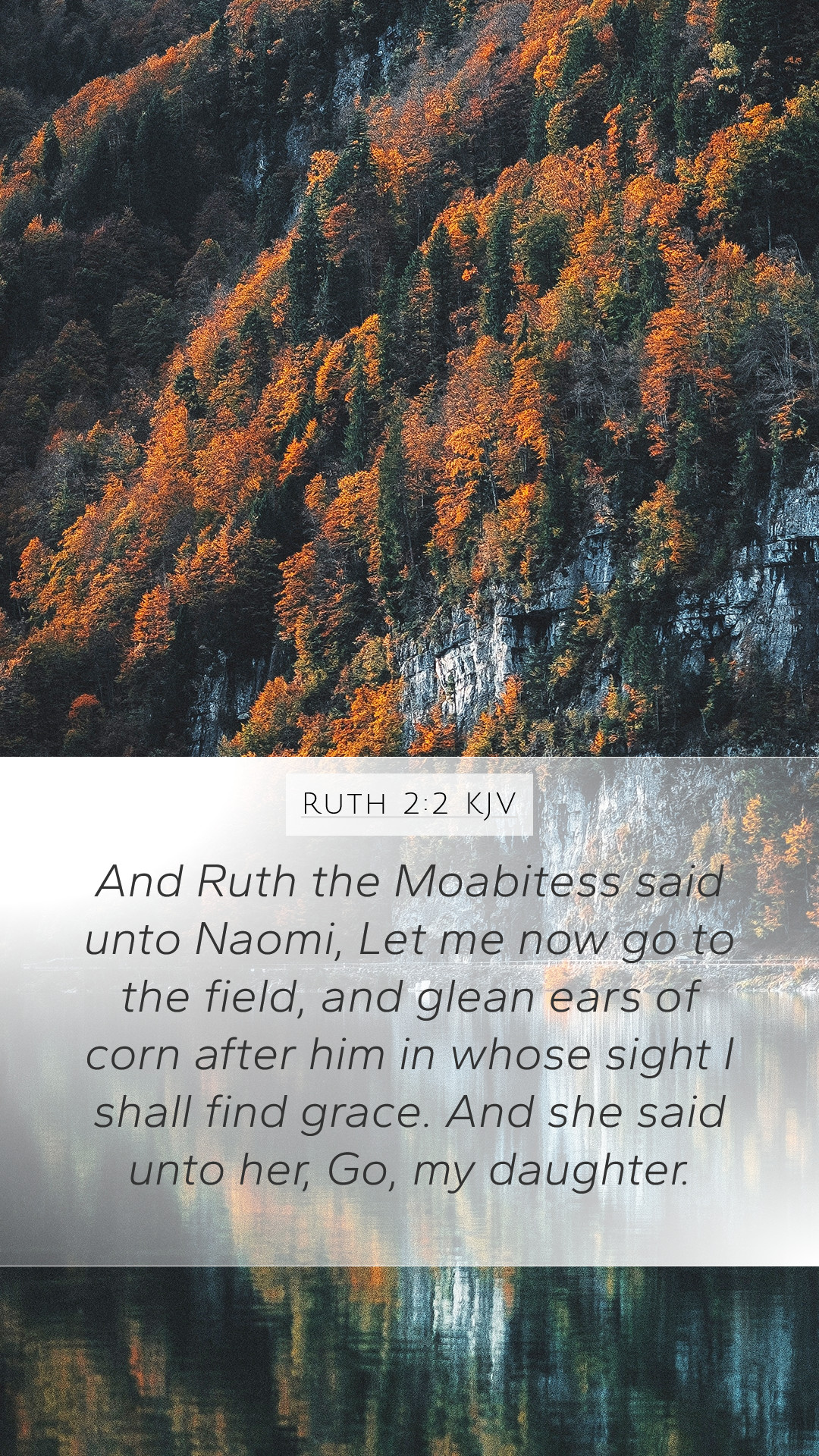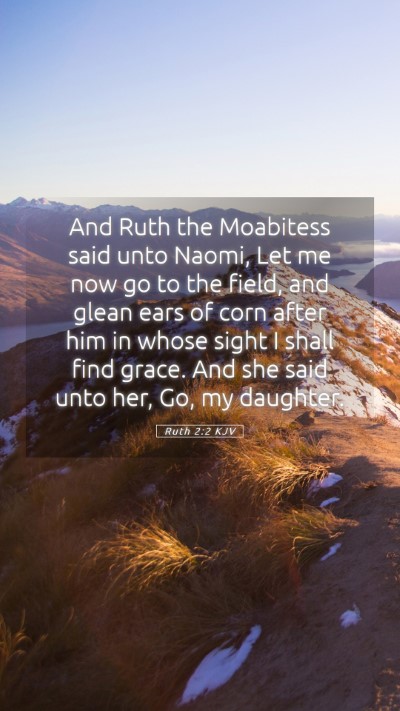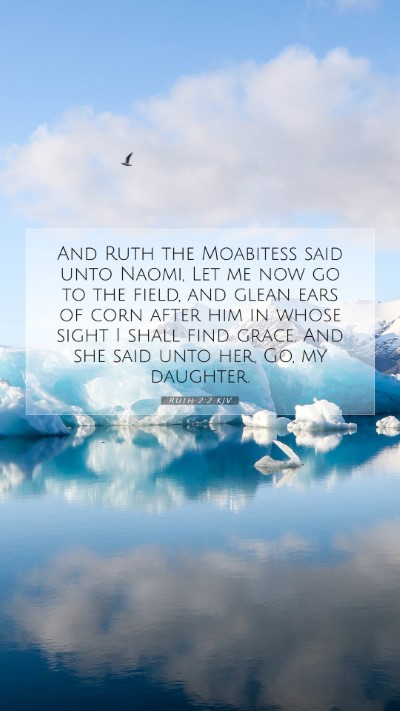Old Testament
Genesis Exodus Leviticus Numbers Deuteronomy Joshua Judges Ruth 1 Samuel 2 Samuel 1 Kings 2 Kings 1 Chronicles 2 Chronicles Ezra Nehemiah Esther Job Psalms Proverbs Ecclesiastes Song of Solomon Isaiah Jeremiah Lamentations Ezekiel Daniel Hosea Joel Amos Obadiah Jonah Micah Nahum Habakkuk Zephaniah Haggai Zechariah MalachiRuth 2:2 Meaning
What is the meaning of Ruth 2:2?
And Ruth the Moabitess said unto Naomi, Let me now go to the field, and glean ears of corn after him in whose sight I shall find grace. And she said unto her, Go, my daughter.
Ruth 2:2 Bible Verse Meaning
Bible Verse Commentary on Ruth 2:2
Scripture: Ruth 2:2 - "And Ruth the Moabitess said unto Naomi, Let me now go to the field, and glean ears of corn after him in whose sight I shall find grace. And she said unto her, Go, my daughter."
Understanding Ruth 2:2
This verse highlights Ruth's initiative and determination to provide for herself and Naomi during a time of great need. It reflects her character and the cultural practices of gleaning in ancient Israel. The act of gleaning was a provision made in the Law for the poor to collect leftover crops from fields after the harvest.
Insights from Commentaries
- Matthew Henry: Matthew Henry notes that Ruth's willingness to glean shows a humble spirit and her devotion to Naomi. It demonstrates her commitment to family and aligns with God's provision for the marginalized.
- Albert Barnes: Barnes emphasizes the significance of grace in this verse. Ruth seeks favor from the harvesters and symbolizes the acceptance and inclusion she desires in Israel as a Moabitess. Her actions signify faith and hope for a better future.
- Adam Clarke: Clarke discusses the social implications of Ruth's request. He asserts that Ruth's decision to glean represents the hard work and labor of the poor. It showcases her proactive nature and willingness to take on challenges for her beloved mother-in-law.
Bible Verse Interpretations
Ruth's request can be seen as a poignant example of how individuals can take initiative in trusting God's provision. Her journey reflects the broader themes of redemption and God's watchful eye over the humble and the faithful.
Historical Context
Understanding the historical context is crucial in Bible study, particularly regarding the welfare system in ancient Israel. According to Leviticus 19:9-10, landowners were commanded to leave the edges of their fields unharvested for the poor and the stranger, thereby providing access to food for those in need.
Thematic Elements
- Faith and Commitment: Ruth exhibits unwavering faithfulness to Naomi, displaying the theme of loyalty found throughout the Book of Ruth.
- Divine Providence: Her actions set the stage for divine intervention, leading to her eventual redemption through Boaz.
- Inclusivity: Ruth, a Moabitess, represents inclusivity and the breaking down of barriers, as she seeks to belong in Israel.
Application of Ruth 2:2
This verse serves as an application point for believers today. It emphasizes the importance of working diligently and seeking God's grace in our pursuits. Just as Ruth was active in her faith, we too are called to be proactive in our lives, trusting that God will provide us opportunities and favor.
Cross References
- Leviticus 19:9-10: Offers insight into the laws of gleaning for the poor.
- Deuteronomy 24:19: Reinforces the mandate for leaving portions of harvest for the needy.
- Matthew 5:7: "Blessed are the merciful, for they shall obtain mercy," signifying the importance of compassion and grace.
Conclusion
Ruth 2:2 serves as a powerful reminder of the traits of diligence, faith, and the pursuit of grace. Through this verse, we gain insights that deepen our understanding of the importance of humility and hard work within the context of faith. By studying this verse, believers can reflect on their journey and their reliance on God's providence in their daily lives.


